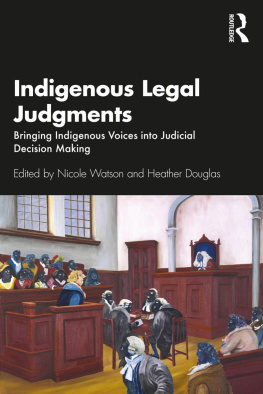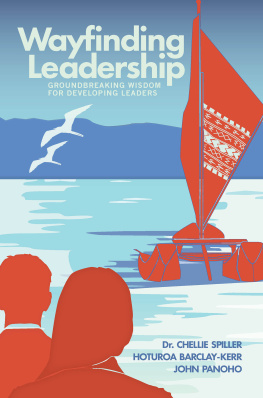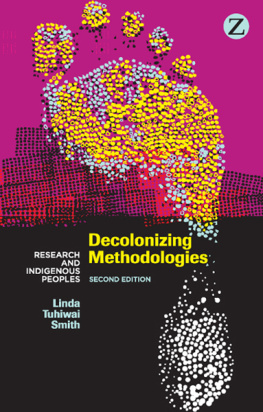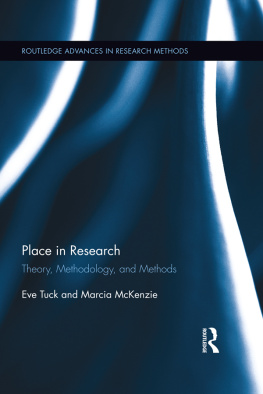
This collection of essay is like the lantana, the wayfaring tree, traveling, reaching deep into fertile soil, each chapter a branch wayfinding its way into blossoms.
Ronald J. Pelias, Professor Emeritus, Southern Illinois University, USA
By centering the global south and indigenous epistemologies this collection offers an important contribution and intervention in critical autoethnographic studies.
Robin M. Boylorn, Associate Professor of Interpersonal and Intercultural Communication, Department of Communication Studies, The University of Alabama
Wayfinding and Critical Autoethnography charts new directions for critical autoethnographers through rigorous, innovative, and emotionally rich texts rooted in geo-cultural perspectives and knowledges. The collection demonstrates that the global south has something to say about critical autoethnography and its high time we listened.
Durell M. Callier, Assistant Professor, Cultural Studies and Curriculum, Department of Educational Leadership, Miami University
Wayfinding and Critical Autoethnography
Wayfinding and Critical Autoethnography is the first critical autoethnography compilation from the global south, bringing together indigenous, non-indigenous, Pasifika, and other diverse voices which expand established understandings of autoethnography as a critical, creative methodology. The book centres around the traditional practice of wayfinding as a Pacific indigenous way of being and knowing, and this volume manifests traditional knowledges, genealogies, and intercultural activist voices through critical autoethnography.
The chapters in the collection reflect critical autoethnographic journeys that explore key issues such as space/place belonging, decolonizing the academy, institutional racism, neoliberalism, gender inequity, activism, and education reform. This book will be a valuable teaching and research resource for researchers and students in a wide range of disciplines and contexts. For those interested in expanding their cultural, personal, and scholarly knowledge of the global south, this volume foregrounds the vast array of traditional knowledges and the ways in which they are changing academic spaces and knowledge creation through braiding old and new.
This volume is unique and timely in its ability to highlight how indigenous and allied voices from the diverse global south demonstrate the ways in which the onto-epistemologies of diverse cultures, and the work of critical autoethnography, function as parallel, and mutually informing, projects.
Fetaui Iosefo is the daughter of Sua Muamai Vui Siope and Fuimaono Luse Vui Siope. She is a Professional Teaching Fellow and doctoral candidate in Critical Studies at the University of Auckland at the Manukau campus, New Zealand.
Stacy Holman Jones is Professor and Director of the Centre for Theatre and Performance at Monash University in Melbourne, Australia. Her research focuses broadly on performance as socially, culturally, and politically resistive and transformative activity. She specializes in critical qualitative methods, particularly critical autoethnography and critical and feminist theory.
Anne Harris is Associate Professor, Principal Research Fellow (RMIT University), and Australian Research Council Future Fellow at RMIT University in Melbourne, Australia. Anne writes and researches in the areas of critical autoethnography, education, gender, creativity, and creative methods. Anne is the Director of Creative Agency (www.creativeresearchhub.com).
ICQI Foundations and Futures in Qualitative Inquiry
Series Editors: Michael Giardina and Norman K. Denzin
From autoethnography, observation, and arts-based research to poststructural, new materialist, and post-qualitative inquiry, interdisciplinary conversations about the practices, politics, and philosophies of qualitative inquiry have never been stronger or more dynamic. Edited by Michael D. Giardina and Norman K. Denzin and sponsored by the International Congress of Qualitative Inquiry (www.ICQI.org), the Foundations and Futures in Qualitative Inquiry series showcases works from the most experienced and field-defining qualitative researchers in the world. Engaging critical questions of epistemology, ontology, and axiology, the series is designed to provide cornerstone texts for different modes and methods in qualitative inquiry. Books in series will serve the growing number of students, academics, and researchers who utilize qualitative approaches to inquiry in university courses, research, and applied settings.
Volumes in this series:
Wayfinding and Critical Autoethnography
Edited by Fetaui Iosefo, Stacy Holman Jones, and Anne Harris
For a full list of titles in this series, please visit: https://www.routledge.com/International-Congress-of-Qualitative-Inquiry-ICQI-Foundations-and-Futures/book-series/ICQIFF
Wayfinding and Critical Autoethnography
Edited by Fetaui Iosefo, Stacy Holman Jones, and Anne Harris
First published 2021
by Routledge
2 Park Square, Milton Park, Abingdon, Oxon OX14 4RN
and by Routledge
52 Vanderbilt Avenue, New York, NY 10017
Routledge is an imprint of the Taylor & Francis Group, an informa business
2021 selection and editorial matter, Fetaui Iosefo, Stacy Holman Jones, and Anne Harris
The right of Fetaui Iosefo, Stacy Holman Jones, and Anne Harris to be identified as the authors of the editorial material, and of the authors for their individual chapters, has been asserted in accordance with sections 77 and 78 of the Copyright, Designs and Patents Act 1988.
All rights reserved. No part of this book may be reprinted or reproduced or utilised in any form or by any electronic, mechanical, or other means, now known or hereafter invented, including photocopying and recording, or in any information storage or retrieval system, without permission in writing from the publishers.
Trademark notice: Product or corporate names may be trademarks or registered trademarks, and are used only for identification and explanation without intent to infringe.
British Library Cataloguing-in-Publication Data
A catalogue record for this book is available from the British Library
Library of Congress Cataloging-in-Publication Data
A catalog record has been requested for this book
ISBN: 9780367343828 (hbk)
ISBN: 9780367343798 (pbk)
ISBN: 9780429325410 (ebk)
Typeset in Bembo
by Newgen Publishing UK
This book is dedicated to Fadi (Lilomaiapolima, Ema, Margaret, Fetu, Tolua) Vui Siope, who continues to show us the way.
Sunrise: 10th of June 1987
Sunset: 25th of August 2019
And to Joshua and Muamai, who are carrying on the legacy in their own way.
Front cover image (paperback)
Fetaui Iosefo: The silhouette on the waka hauroa (double-hull canoe) is Fadi. She is holding the hoe (steering paddle), navigating us. On the sail is the fish hook that Fadi always wore. She received it from Hoturoa Barclay-Kerr, her wayfinding teacher and brother. The symbols on the second sail are the ones of our Samoan ancestors. The diamond is the symbol of our female ancestors. The Samoan symbols are the ones that are tattooed on my left hand and right hand. Our







